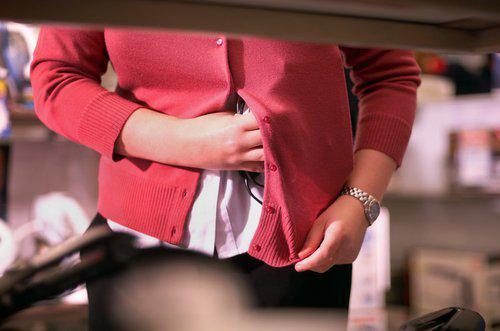The Harsh Reality of Being Charged with Retail Theft
 In Wisconsin, an individual charged with retail theft could not only be the subject of a criminal lawsuit, but a civil one as well. What most people do not know is that retail theft is a very serious crime in Wisconsin. Not only do allegations of retail theft carry severe criminal penalties, but the idea of a civil lawsuit hanging over your head can be extremely pleasant.
In Wisconsin, an individual charged with retail theft could not only be the subject of a criminal lawsuit, but a civil one as well. What most people do not know is that retail theft is a very serious crime in Wisconsin. Not only do allegations of retail theft carry severe criminal penalties, but the idea of a civil lawsuit hanging over your head can be extremely pleasant.
Under Wisconsin law, retail theft ranges from a Class A misdemeanor to a Class G felony. If you are charged with the theft of items worth less than $500, you will be charged with a Class A misdemeanor and will be subject to punishment of up to nine months in jail and up to $10,000 in fines. But if you are charged with stealing over $10,000 worth of items, you could face up to $25,000 in fines and up to 10 years in prison. If you have prior retail thefts on your criminal record, you will be subject to harsher punishments.
In some instances, you could be given a ticket for under $100 for retail theft if the theft is something of much lesser value than $500, and it might not be considered a crime. If you have a prior record of retail theft, this could move the charges towards a misdemeanor or felony. In either case, any criminal charges or convictions on your record can have a significant impact on your life. You will be stuck with a permanent criminal record that will follow you for the rest of your life. If you are charged with retail theft, you should consult with an experienced retail theft attorney who will help you fight the charges and avoid the stigma.
Proving Retail Theft Charges
In order to show retail theft occurred, the prosecutor must prove three elements. First, the prosecutor must show that you committed some intentional act of deceit. Wisconsin law, as indicated above, requires showing that you:
- Altered indicia of price or value;
- Took or carried items away;
- Transferred, concealed or retained possession of items;
- Removed a theft protection device; or
- Possessed or used a theft detection shielding device.
Secondly, the prosecution needs to prove you committed the intentional act of deceit without the consent of the merchant. Finally, the prosecution needs to prove that you intended to permanently deprive the merchant of its lawful possession of the items.
In some retail theft cases, the prosecution will be hard pressed to prove each element because they will not have much evidence to use, other than the word of the witness who allegedly caught you stealing. But, in other cases, the prosecution will have surveillance and other evidence to attempt to build a case against you.
If you are unfairly accused of retail theft, consult a skilled Milwaukee criminal defense attorney who will be able to layout your options and the penalties you are facing, and will be able to advise you of the best possible solution to your problem.







